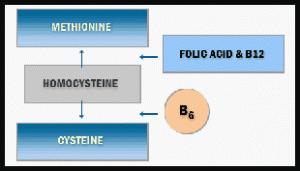Premenstrual depression, moodiness, insomnia, abdominal cramps and headaches are some of the symptoms that create havoc for up to 40 % of menstruating women. Premenstrual Syndrome (or PMS for short) does not just mean a” cranky” few days for the women who suffer from it, but a host of unpleasant effects. Many experience bloating and breast tenderness, and they find that their daily functioning at work and in personal relationships is impaired. Food cravings are part of the picture, and often the so-called “comfort foods” are high on the list like ice cream, chocolate, cookies, or cake. Unfortunately these are not helpful at all, whereas other foods can be beneficial. The American College of Obstetricians and Gynecologists has published recommendations already in 2000 in which a diet of complex carbohydrates was recommended and supplementation of calcium, magnesium and vitamin E. Small meals that are rich in complex carbohydrates and that also contain protein and fat are useful to keep blood sugar levels stable. Even though some women crave sugar, candy, baked goods and pop, the rapid fluctuations in blood sugar only contribute to moodiness and irritability. Caffeine can also contribute to irritability, but by the same token, quitting coffee or tea abruptly will make many feel worse. A gradual decrease would be the gentler approach.
Alcohol intake is an especially bad idea, as it is a depressant and does nothing to lift the mood. People who have bloating or edema should avoid sodium.
Trials have shown what works to control PMS. More than 400 women were enrolled in a study group and were given 1,200 mg of chewable calcium carbonate daily. Those taking the supplement benefited from a 48% decrease of symptom severity. Within the Nurses’ Health Study II researchers followed up on a group of 1,057 women who got PMS and another group of 1,968 women who did not during 1991 and 2005. Women who consumed 400 IU of vitamin D a day had a lower relative risk of developing PMS. Consumption of calcium and vitamin D were measured by a food questionnaire. Calcium consumption of about four daily servings of fortified orange juice, skim-or low-fat milk or low-fat yogurt was inversely related to PMS.
The lead author of the study was Dr. Elizabeth Bertone-Johnson PhD, from the department of public health at the University of Massachusetts in Amherst. Her colleagues agree that vitamin D and calcium is beneficial to women of all ages, since these nutrients also reduce the risk of osteoporosis. Trials of vitamin B6 in doses of up to 100 mg daily seemed to help, as reported already in 2003 in a review by American Family Physician.
For the patient it means that small, regular meals are a good idea. So are complex carbohydrates, low-glycemic fruit like apples or berries and lots of vegetables. Consume low-fat milk or low-fat yogurt. Give the calcium supplements and the vitamin B6 a try. Minimize red meat, saturated and trans fats. Avoid salt, refined carbs, sugar, salt and alcohol. All of these aspects can make a significant contribution to a reduction of PMS symptoms as well as to health and wellness.
More info on premenstrual syndrome: http://nethealthbook.com/womens-health-gynecology-and-obstetrics/pms/
Reference: The Medical Post, June 28.2005, page 23
Last edited October 29, 2014







